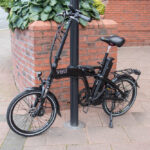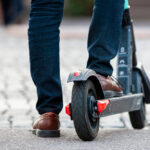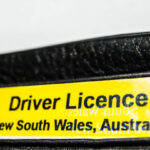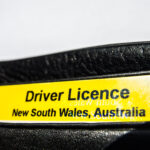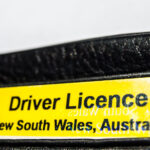Calls to Legalise eScooters and to Increase Power and Speed Caps for eBikes in NSW
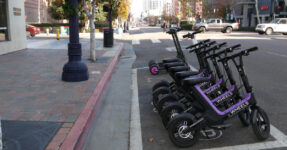
The New South Wales Productivity Commission has called for a review of laws relating to eBikes and eScooters, with a view to encouraging the use of these environmentally friendly transport options.
Speeds caps should be increased
The NSW Productivity Commission’s Research and Discussion Paper ‘Regulating Emerging Techologies’ was released last month.
Among other things, it recommends that power limits and speed caps be raised for eBikes, and that the use of eScooters be legalised on roads and road related areas.
eBikes
The electric bicycle market has increased by a massive 800% over the past five years.
But because the speed cap in our state is just 200 watts for throttle power assisted bikes and 25km/ph for pendal assisted bikes, which are the lowest in the world, many of the eBikes being used on our roads have had illegal modifications to allow them to reach speeds of more than 100km/ph.
The Commission believes that if speed caps were increased to a more modest level, the desire for illegal modifications would cease, and perhaps encourage more people to take up eBikes as a mode of transport.
It says this would bring millions of dollars in economic benefits for the state through:
- Travel time savings where they replace conventional bicycles and walking,
- Reduced delivery costs, as they are found to be 60% faster for ‘last mile deliveries’ than vans in urban areas, and
- Reduced urban convention.
It also found that the move would reduce environment impacts and provide active health benefits, where the bikes replace conventional means of delivery and transportation.
What are the rules relating to eBikes in New South Wales?
There are only two types of eBikes permitted on roads and road-related areas in New South Wales.
These are:
- Power-assisted cycles whereby the motor is activated by a throttle, and
- Power-assisted pedal cycles whereby the motor is activated only when pedalling.
In either case, these must be designed to be propelled primarily by the rider; in other words, they cannot be propelled exclusively by the motor.
The motor is intended to provide a limited degree of assistance only.
Power-assisted cycles (throttle activated motor)
The requirements for a power-assisted pedal cycle to be legal on a road or road-related area are that:
- Its motor or motors cannot have a combined maximum power output of more than 200 watts,
- It cannot be exclusively propelled by motor,
- It must have a total weight of less than 35 kilograms, and
- It must have a height-adjustable seat.
Power assisted pedal cycles (pedal activated motor)
The requirements for an electrically power-assisted cycle to be legal on a road or road-related area are that it has a maximum continued rated power of 250 watts which must be:
- Progressively reduced as the speed increases, and
- Cut off when it reaches a speed of 25km/h or the rider stops pedalling.
No licence or registration required for eBikes
EBikes do not have to be registered and it is not necessary to have a driver or rider licence to operate them
What is the definition of a road?
A road is defined as an area that is open to or used by the public and is developed for, or has as one of its main uses, the driving or riding of motor vehicles.
What is the definition of a road-related area?
A road-related area is defined as:
- an area that divides a road
- a footpath or nature strip adjacent to a road
- an area that is open to the public and is designated for use by cyclists or animals
- an area that is not a road and that is open to or used by the public for driving, riding or parking vehicles
- a shoulder of a road, or
- any other area that is open to or used by the public and that has been declared under to be an area to which specified provisions of the Road Transport Act or the statutory rules apply.
Riders of eBikes must wear a helmet
Electric bike riders must, like all bicycle users, wear an approved safety helmet.
This is a helmet with a label certifying it meets the Australian and New Zealand standard, which is AS/NZS 2063.
Helmets manufactured after 31 March 2011 must have an identifying mark from a body accredited or approved by the Joint Accreditation System of Australia and New Zealand (JAS-ANZ) certifying compliance with the standard.
In New South Wales, rule 256 of the Road Rules 2014 states:
The rider of a bicycle must wear an approved bicycle helmet securely fitted and fastened on the rider’s head, unless the rider is exempt from wearing a bicycle helmet under another law of this jurisdiction.
Failure to wear a helmet can result in an on-the-spot fine of $344.
Petrol-powered bicycles
It is illegal in New South Wales to ride petrol-powered bicycles on roads and road related areas.
A petrol bike is one that has a petrol-powered engine attached, whether before or after purchase, or is powered by another type of internal combustion engine.
eScooters
New South Wales is the only state which bans e-Scooters on roads and road-related areas, such as footpaths.
The NSW Productivity report recommends changes to allow eScooters on roads and road-related areas, advising that this would provide similar benefits to an increase in the use of eBikes.
It is perfectly legal for eScooters to be bought and sold in Australia, but retailers and second-hand sellers (via eBay or Buy/Swap groups) are encouraged to notify potential customers that eScooters are not allowed on public roads or footpaths – although there is no legal obligation for them to do so.
Going to court for a traffic offence?
If you are going to court for a traffic offence, call or email Sydney Criminal Lawyers anytime to arrange a free first consultation with an experienced, specialist traffic lawyer who will accurately advise you of your options, the best way forward, and fight for the optimal outcome in your specific situation.



